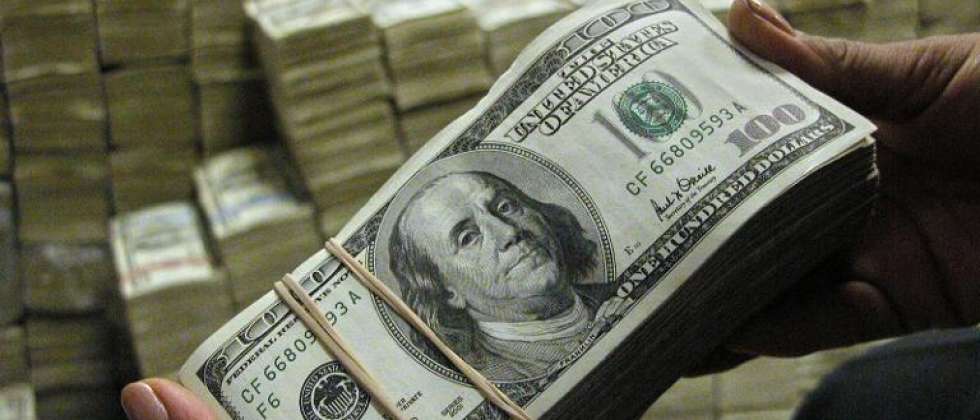Nigeria’s central bank told commercial lenders at a meeting last week that it plans to cut dollar supplies to the market because it is running short of reserves, according to a person who attended the talks.
Deputy Governor Sarah Alade told treasurers of the country’s banks at the meeting in Lagos on Nov. 13 that they should prepare for exchange-rate policies to remain in place for longer and that there are no plans to devalue the naira or to loosen currency-trading restrictions, according to the person, who asked not to be identified as the talks were private. The central bank will only sell as many dollars to banks or currency-dealers as it receives from oil exports, which amounts to about $1 billion a month, the person said.
Alade and Ibrahim Mu’azu, a spokesman for the Abuja-based central bank, didn’t answer calls to their mobile phones or immediately respond to text messages and e-mails seeking comment.
Nigeria, Africa’s biggest oil producer and which derives 90 percent of export earnings from the commodity, is struggling to cope with a more than 60 percent plunge in Brent crude prices since June 2014 to under $45 a barrel. Central bank Governor Godwin Emefiele, backed by President Muhammadu Buhari, has kept the naira from weakening by restricting how much foreign-exchange banks and their customers can buy in the interbank market. Since March, the naira has been all but fixed at 198 to 199 per dollar even as central bankers in other major oil sellers such as Russia, Colombia and Kazakhstan have let their currencies fall.
Hurting Economy
While Nigeria’s foreign reserves have dropped 19 percent since the end of June 2014, they increased 0.5 percent in the past month to $30.3 billion as the central bank sells fewer dollars.
Emefiele’s policies are hurting the economy, which is growing at its slowest pace this century, by deterring foreign investment and preventing businesses from importing all the goods they need to operate, according to Moody’s Investors Service. Banks are struggling to find enough dollars to meet existing obligations to customers and some have to rely on foreign loans, according to the ratings company.
“It’s starting to affect the banking sector,” Douglas Rowlings, an analyst at Moody’s, said in an interview in Lagos on Nov. 18. “Many businesses are drawing on their letters of credit to pay overseas suppliers. The banks, to meet these obligations, then have to use overseas loans. It was initially a corporate problem, but it is starting to increase vulnerabilities for the banking sector.”
Economic growth fell to 2.8 percent on an annualized basis in the third quarter from 6.2 percent a year earlier. It will slump to 3.9 percent in 2015, the slowest pace since 1999, according to the median estimate of 10 economists surveyed by Bloomberg.
‘More Difficult’
Companies have to wait as long as two weeks to obtain dollars, said Mark Rutten, finance director of Nigerian Breweries Plc, the nation’s biggest brewer that is 53 percent owned by Heineken NV. The company has been in discussions with the central bank about the issue, he said.
“Is it getting more difficult than three months ago?” Rutten said in a presentation to investors in Lagos on Thursday. “Yes, it’s getting more difficult. We are making this point that it’s getting more difficult to source dollars” to the CBN, he said.
Emefiele has consistently said that the naira is “appropriately priced” and that his measures are aimed at promoting local production and stemming inflation in a country that imports almost all its manufactured goods.
His stance is “driven by political considerations as much as economic” because Buhari, who came to power in May, doesn’t want price rises to “lose him much of his current goodwill,” analysts at BMI Research said in a Nov. 18 note. The currency will fall to 220 per dollar next year because slowing growth will force the central bank into an “inevitable” devaluation as the economy worsens, the analysts said.
The naira declined 0.1 percent to 197.95 per dollar as of 1:10 p.m. in Lagos. The forwards market suggests the currency will weaken 7.4 percent to 212.5 in three months and 25 percent to 247.5 in a year.

